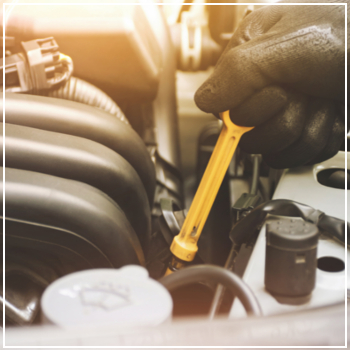Understanding the Fluids Your Car Needs
 Regular maintenance of your vehicle's fluids is essential for optimal performance. Neglecting these checks, especially delaying oil changes or using subpar coolant, can significantly affect everything from engine efficiency to steering responsiveness.
Regular maintenance of your vehicle's fluids is essential for optimal performance. Neglecting these checks, especially delaying oil changes or using subpar coolant, can significantly affect everything from engine efficiency to steering responsiveness.
Research suggests that about a quarter of cars on the road have at least one fluid issue that needs attention—whether it’s an oil change, a top-up, or something more serious. Understanding the role each fluid plays and knowing how to monitor them can help keep your car running smoothly. Here’s what you need to know about the key fluids your vehicle relies on.
Engine Oil
This is the lifeblood of your engine, ensuring moving parts don’t grind against each other and wear out prematurely. Engine oil reduces friction, dissipates heat, and even cleans debris from the engine bay.
Experts recommend changing your oil every 3,000 to 5,000 miles. If you're comfortable checking the oil levels yourself, make sure your car is parked on a flat surface and the engine is cold before starting. The dipstick is usually located near the front of the engine block.
To check the oil, pull out the dipstick, wipe it clean with a paper towel, and then reinsert it. Pull it out again to see where the oil lines up. There should be a "full" mark on the dipstick—if your oil is below that, it’s time for a top-up. Additionally, pay attention to the color. Healthy oil should be amber or light yellow. Dark or sludgy oil signals that it’s degraded and needs replacement.
Transmission Fluid
Without proper transmission fluid, shifting gears smoothly becomes a challenge. This fluid keeps the transmission system functioning by reducing friction and allowing the engine to transfer power efficiently to the wheels.
Newer cars typically require a transmission fluid change every 60,000 to 100,000 miles. However, it’s still wise to occasionally inspect the fluid’s condition. Fresh transmission fluid is usually clear and reddish, while older fluid tends to turn brown or develop visible particles.
Coolant/Antifreeze
Coolant, also known as antifreeze, serves two crucial purposes: keeping your engine cool during hot weather and preventing it from freezing in colder climates. It also protects against corrosion inside the radiator and cooling system.
Most mechanics suggest flushing and replacing the coolant every 50,000 miles. In the meantime, always check the fluid for any discoloration or signs of leaks. Avoid substituting coolant with plain water, as this could lead to corrosion and potential engine damage, particularly in freezing temperatures.
Brake Fluid
Just like the transmission system, the braking system requires its own fluid. Brake fluid transmits the pressure you apply to the brake pedal to the brakes themselves, helping slow down or stop the car. As brake pads wear down over time, the brake fluid level decreases accordingly.
Replacing brake fluid can be tricky since contamination from moisture, dust, or grease can compromise its effectiveness. For this reason, it’s best to leave brake fluid changes to professionals.
Power Steering Fluid
Power steering fluid ensures smooth handling when turning the wheel. Low or missing power steering fluid makes the steering wheel feel heavier and harder to maneuver. If you notice stiffness, consider topping off the fluid or scheduling a professional inspection.
Windshield Washer Fluid
Washer fluid is often overlooked but plays a vital role in maintaining visibility. Regularly replenishing the reservoir ensures your windshield stays clean, especially during rain or snow.
Other Essential Fluids
In addition to the above, there are several other fluids critical to your car’s operation:
- Differential Fluid: Also called gear oil, this lubricates the gears in your front and rear axles, enhancing transmission and power steering functionality.
- Refrigerant: Unlike coolant, refrigerant keeps the AC system operational by enabling it to produce cool air effectively.
Ignoring routine checks and maintenance for these fluids can lead to costly repairs, reduced fuel efficiency, overheating engines, and even accidents. For peace of mind, schedule an oil change and have all your vehicle’s fluids inspected at our Naugatuck location today.
PVC CPE EVA Plastic Zipper Packaging Bag
Plastic Zipper Packaging Bag,Pvc Zipper Packaging Bag,Cpe Zipper Packaging Bag,Eva Zipper Packaging Bag
Dongguan Pasike Packaging Co., Ltd. , https://www.dgpasike.com